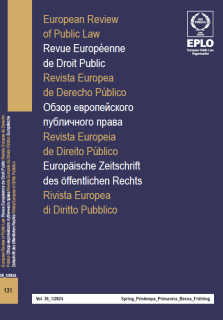
Artificial Intelligence and Public Authorities: Does the European AI Act Protect Public Values?
Barbara Marchetti
Full professor of Administrative Law at the University of Trento, Italy
The AI Act of the European Union has established the world’s first regulation on artificial intelligence, adopting an approach proportional to the risk and defining the conditions under which an AI system can circulate in the EU and be used. It applies to both private entities and public administrations, the latter increasingly employing AI systems. In general terms, public authorities are obligated to adhere to rules in their actions that differ from those applicable to private entities, aimed at ensuring the transparency of their actions, the participation of interested private parties, the justification of decisions (duty to give reasons), equality, proportionality, and decisions’ reviewability. This aims to analyze the relationship between European regulation of AI and public values when public authorities are concerned.
Keywords: Artificial intelligence; AI Act; public administrations; Rule of Law
La loi sur l’IA de l’Union européenne a établi la première réglementation mondiale sur l’intelligence artificielle, en adoptant une approche proportionnelle au risque et en définissant les conditions dans lesquelles un système d’IA peut circuler dans l’UE et être utilisé. Elle s’applique aussi bien aux entités privées qu’aux administrations publiques, ces dernières employant de plus en plus de systèmes d’IA. D’une manière générale, les autorités publiques sont tenues de respecter dans leurs actions des règles différentes de celles applicables aux entités privées, visant à garantir la transparence de leurs actions, la participation des parties privées intéressées, la justification des décisions (obligation de motivation), l’égalité, la proportionnalité et la possibilité de réexaminer les décisions. Il s’agit d’analyser la relation entre la réglementation européenne de l’IA et les valeurs publiques lorsque les autorités publiques sont concernées.
Mots-clés: Intelligence artificielle; Loi sur l’IA; administrations publiques; État de droit





















